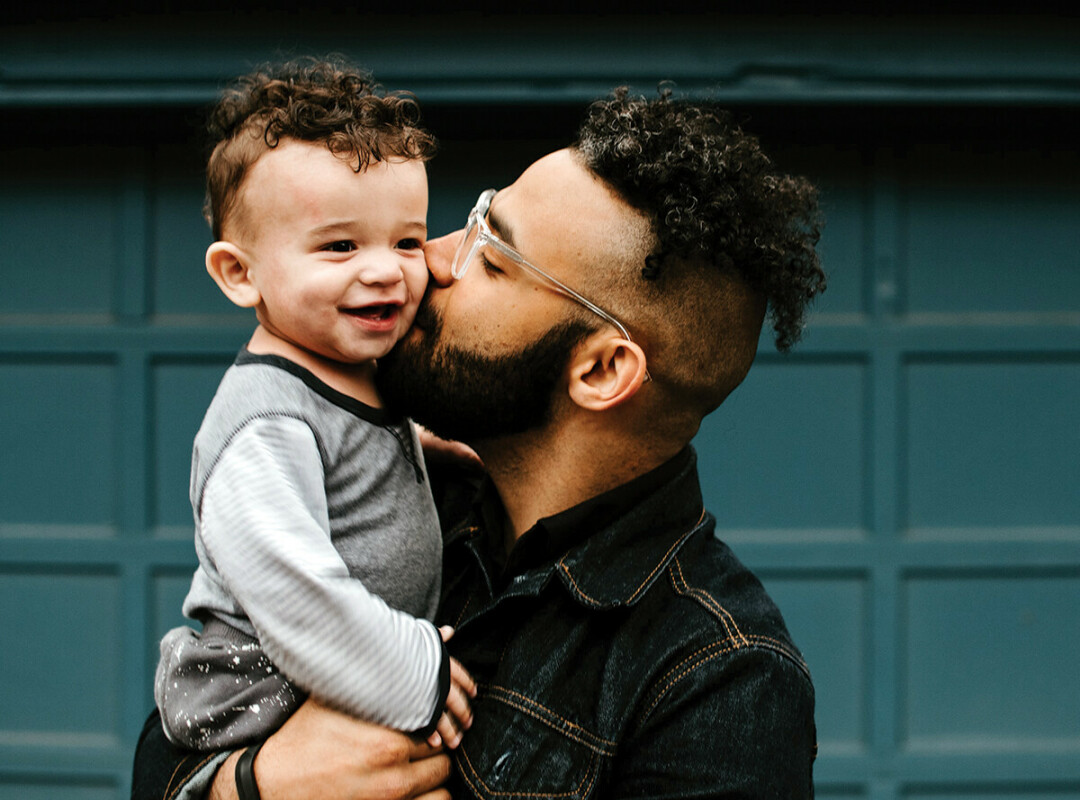Building Baby’s Brain: Talking to Your Kids Is Key
conversation can build literacy skills and strengthen family bonds

Parents, did you realize that children develop essential skills that help them learn how to read long before formal reading instruction begins? These are called early literacy skills, and they include vocabulary, print motivation, phonological awareness, print awareness, letter knowledge, and narrative skills.
How do children gain these skills, exactly? The answer is simple. Through everyday nurturing interactions with you! When you talk, read, sing, and play with your children, you are helping them build these foundational skills, and you’re strengthening your bond with your child in the process. Win, win!
Your talk has the power to build your child’s brain. While it is important to talk to your child, research shows it is more impactful to talk with your child. This is true even for infants, whose crying and smiling, cooing and babbling is part of early language and social development! How can you effectively talk with your baby, toddler, or preschool-aged child? The Center on the Developing Child at Harvard University created a handy five-step process for engaging your young children in back-and-forth or “serve and return” conversations:
- Notice the serve and share the child’s focus of attention.
- Return the serve by supporting and encouraging.
- Give it a name!
- Take turns … and wait. Keep the interaction going back and forth.
- Practice endings and beginnings.
Check out examples and learn how each step in this process impacts child development by visiting the Center on the Developing Child (tinyurl.com/azz7npdc).
Another useful model for talking with your children comes from the University of Chicago’s Thirty Million Words (TMW) program, where researchers have developed the 3T’s for communicating with children and building their brains.
The 3T’s are simply:
- Tune in.
- Talk more.
- Take turns.
Notice how the first step in the 3T’s and the serve and return models aren’t about talking at all. The first step is not about getting your child to pay attention to something you are interested in. Importantly, the first step is about observing your child and tuning into what it is that they are focused on. Once you discover their focus of attention, you can share in that experience with them by talking about it. TMW offers practical strategies for communicating with babies, toddlers, and 2- and 3-year-olds that include the following:
- Describe what your child is seeing, hearing, tasting, touching, or smelling.
- Narrate your activities with your child. “Don’t just do it, talk your child through it!”
- Book Share! Talk about the illustrations, what the characters are doing/feeling, etc.
- Math Talk. Build early math concepts by discussing numbers, sizes, shapes, comparisons, etc.
For additional strategies and to see how they look in action, visit Thirty Million Words (tmwcenter.uchicago.edu/parents).
Lastly, while positive and responsive interactions are ideal for development, managing challenging behaviors is a normal part of parenting. Thankfully, the Family Resource Center offers a research-based parenting program called “Triple P” for all parents of children ages 0-12 that helps parents build strong relationships with their children, manage stress, and encourage healthy habits. Learn more by visiting the Family Resource Center (www.frcec.org/triple-p).
Enjoy talking with your child! Find information and tips about the other early literacy practices in our blog posts about reading, singing, and playing, which you can find at www.ecpubliclibrary.info/kids.
Jerissa Koenig is the early literacy outreach librarian for the L.E. Phillips Memorial Public Library’s Youth Services division. She holds degrees in both child psychology and library and information studies. You can read more from Jerissa and her fellow librarians at www.ecpubliclibrary.info/kids.


